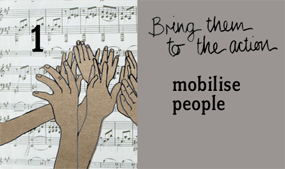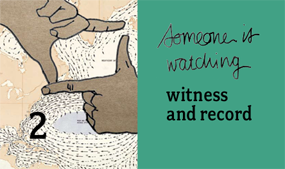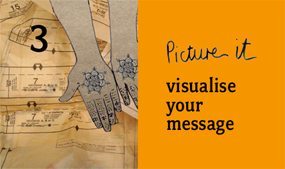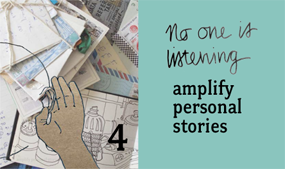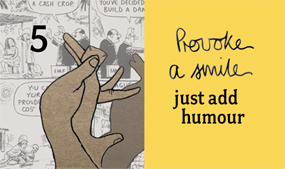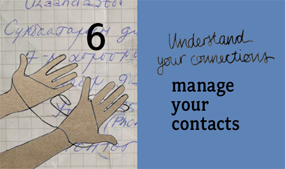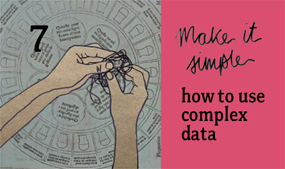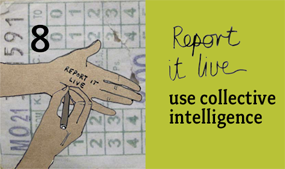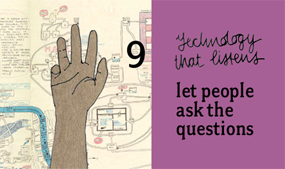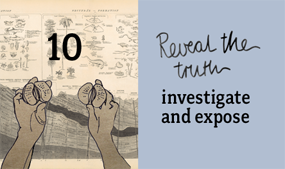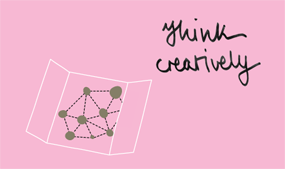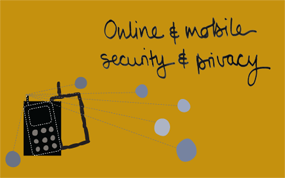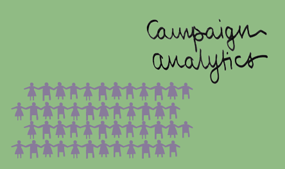We have recently added a Ukrainian version of the 10 Tactics film and accompanying cards to our website, kindly translated by Andrew Duchtak of Civil Network OPORA. 10 Tactics is now subtitled in over 20 languages with support materials available in 6 languages which can be downloaded here. Andrew began working in the NGO sector in 2003 and the following year (after the 'Orange Revolution'*) set up Civil Network OPORA, an NGO which monitors the electoral process in Ukraine and mobilises the community to increase the voting turnout.
Andrew is currently traveling all over Ukraine monitoring the upcoming local elections taking place on October 31st and is especially involved in administering internet and new media resources for the organisation.
Andrew was introduced to 10 Tactics by the organizer of MediaBarCamp and realised the toolkit would be useful in his work.
Andrew says, “I’m looking for all sorts of interesting ideas to make NGO work more effective. I plan to use [the cards] when conducting trainings for NGOs in Ukraine. It’s better to see something once than hear about it a hundred times. If [local NGO’s] get more effective tools then they will work much better. That lack of knowledge about tactics and tools only impeded the development of this area [in Ukraine]."
In the build up to the presidential election in January 2010, Civil Network OPORA’s impressive goal was to raise the voting turnout from 50% to 75%.
Their campaign began in October 2009, using technology from the outset to encourage people to vote. Civil Network OPORA uploaded a video clip to YouTube, used Twitter to live 'broadcast’ the election and set up groups on social network sites like Facebook and Vkontakte. Andrew also set up Internet-Mobilisation, a dedicated website to motivate and encourage people to take part in the electoral process. Volunteers took pictures of themselves holding pieces of paper explaining their reasons to vote and posted them onto the site.

Civil Network OPORA also produced posters and spread them virally. These posters traditionally use irony, wit and humour when tackling a negative subject. For example, one poster referred to the low turnout in elections in the Soviet Union. The translation reads: "In that time, the majority also did not want to vote. And you know what happened. Change yourself, change the country. Vote!"
These methods established a dialogue and provoked discussion as to why people should vote. Discussions on these sites spread to the blogging community and the campaign took on a life of its own.
On the presidential election day, Civil Network OPORA used text-messaging services to receive reports from observers and the public. They received text updates from 1,003 official observers by developing their own server system adapted to their modems and the Cyrillic alphabet. The public sent messages about violations via Twitter.
Civil Network OPORA covered 225 constituencies across Ukraine with 74 long-term observers and 1,003 observers to monitor the election day and also monitored the vote count and complaints process. The campaign ended with Election MiniCamp where 75 activists attended the camp to discuss the use of technology in the daily work of NGOs and later wrote a guide documenting the work and strategy of the campaign.
All this hard work paid off - the voting turnout increased to 70%. Now the focus is on keeping up this momentum and ensuring the upcoming local election achieves a similarly high turnout.
*Read about the Orange Revolution on Wikipedia and see it in pictures here.
Download 10 Tactics and accompanying Ukrainian cards.
LINKS: Civil Network OPORA, Internet-Mobilisation, follow the campaign on Twitter.
PHOTO: Civil Network OPORA volunteer.



